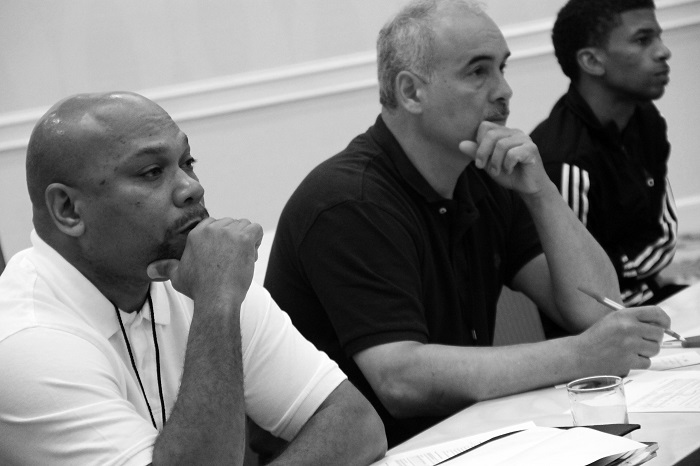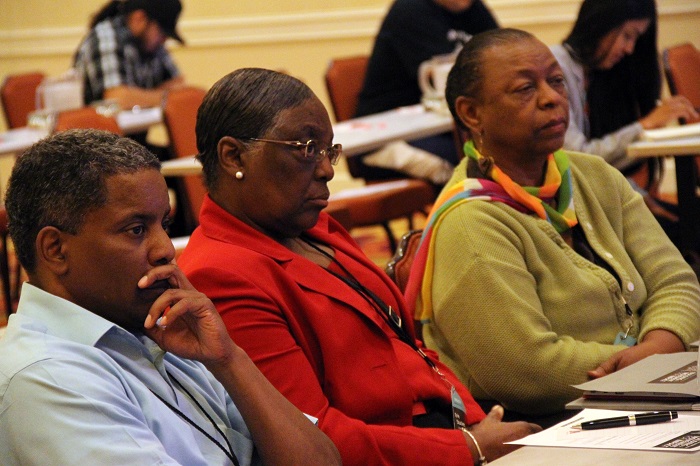Movement Moments: Building Power for Sustainable and Transformative Change
Participants heard from grassroots organizers and other leaders on how to take advantage of those historic moments that spark something in the collective conscience, and how to build political influence and achieve policy impact.
Presenters/Moderators
Katrina Gamble
Center for Popular Democracy
Jose Lopez
Make the Road New York, Youth Power Project
Anthony Newby
MN Neighbors Organizing for Change (MN NOC)
Rashad Robinson
Color of Change
Main Points
- Communication is very important for the growth and sustainability of a movement.
- The way the media controls the narrative can change everything.
Jose Lopez
- Opportunities: For the campaign to end police violence against people of color in New York City, we had access to relevant data and could collaborate with organizations that were working on these issues.
- Challenges: How do we build a campaign on a broad frame that boosts political will in New York City? How do communities promote community safety with respect?
- When developing a platform, we need to identify what is “non-negotiable.”
- Coalition building is hard, but it needs to happen. It is important to work within different working groups that are focused on certain themes (e.g., legal advocacy, voting, community empowerment).
- There’s a large need for philanthropic research and support.

Anthony Newby
- On strategy: Be nimble and quick and don’t provide a platform for politicians to advance their own agendas. Maintaining that independence ensures we keep the power.
- On missed opportunities: We have not done the best job having a political agenda. For example, we have certain people in power, but we didn’t advance the issues.
Rashad Robinson
- We need to build movements that can lead to bigger things and even change the culture. We should target Hollywood and the media.
- We are playing small ball when we focus on local issues. What are the interventions we can stage that are big enough the change the landscape?
Key Strategies
- Communication is key to reaching the most people. Effective strategies include developing a statewide story bank, training people to tell their stories, and hiring a communications firm to help win on key issues.
- Organize a base that is conscious and involved.
- Do the homework and look into developing a 501(c)(4).
- Maintain the political, social, and financial strength to ensure a campaign’s success.
- Before starting a campaign, make sure it is tied to a political agenda.
- Ensure sustainability with a strong governance structure.
Action Steps
- Keep moving and working with the community.
Standout Quotes
"Campaigns are onramps for people to get involved in the movement."
Rashad Robinson





